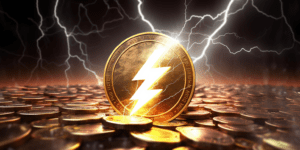Introduction
Tokenization has emerged as a transformative force in the financial landscape, enabling the representation of real-world assets as digital tokens on a blockchain. This article explores the benefits of tokenized assets, focusing on how tokenization enhances liquidity and accessibility in traditional and emerging markets.
1. Definition of Tokenized Assets
- Digital Representation: Tokenized assets are digital representations of real-world assets, such as real estate, stocks, commodities, or art, using blockchain technology.
- Fungible Tokens: These digital tokens are often fungible, meaning each unit is interchangeable with another and can be divided into smaller units, enhancing divisibility and liquidity.
2. Enhanced Liquidity
- 24/7 Market Accessibility: Tokenized assets enable trading 24/7, providing continuous market access compared to traditional markets with set operating hours.
- Fractional Ownership: Tokenization allows investors to own fractions of high-value assets, reducing the barrier to entry and increasing market participation.
- Global Accessibility: Investors from around the world can engage in trading tokenized assets, fostering a global marketplace and increasing liquidity.
3. Accessibility for a Broader Audience
- Democratization of Investments: Tokenization breaks down traditional investment barriers, allowing a broader audience to participate in asset classes that were once exclusive.
- Lower Minimum Investment: Fractional ownership enables investors to enter markets with lower capital, promoting financial inclusion and diversification.
- Automated Compliance: Smart contracts embedded in tokenized assets can automate compliance processes, simplifying onboarding and ensuring regulatory adherence.
4. Efficient Settlement and Reduced Intermediaries
- Smart Contract Automation: Tokenized assets operate on smart contracts, automating settlement processes and reducing the need for intermediaries.
- Real-Time Transactions: Blockchain facilitates real-time settlement, eliminating the delays associated with traditional financial systems.
- Cost Reduction: By automating processes and reducing intermediaries, tokenization contributes to cost efficiency in transactions.

5. Fractional Ownership and Portfolio Diversification
- Diverse Investment Portfolios: Tokenization allows investors to diversify portfolios by gaining exposure to various asset classes without the need for significant capital.
- Risk Mitigation: Fractional ownership enables investors to spread risk across multiple assets, reducing the impact of poor performance in a single asset.
6. Real Estate Tokenization: A Case Study
- Unlocking Illiquid Assets: Real estate, historically considered an illiquid asset, becomes more accessible and liquid through tokenization.
- Global Investment: Investors worldwide can participate in real estate markets, contributing to a more interconnected and efficient global real estate ecosystem.
- Automated Dividends and Governance: Tokenization allows for automated distribution of rental income and transparent governance through smart contracts.
7. Regulatory Considerations and Compliance
- Adherence to Regulations: Tokenized assets must comply with existing financial regulations. Adhering to regulatory standards enhances investor confidence and ensures the legitimacy of tokenized offerings.
- Compliance Automation: Smart contracts can embed compliance rules, automating adherence to regulatory requirements and reducing the risk of non-compliance.
Conclusion
Tokenized assets represent a paradigm shift in the financial landscape, offering enhanced liquidity, accessibility, and efficiency. The benefits of tokenization extend beyond traditional asset classes, providing opportunities for a broader audience to participate in global markets.
As the tokenization space continues to evolve, it is crucial to address regulatory considerations, foster industry collaboration, and educate investors on the transformative potential of tokenized assets. By leveraging blockchain technology, tokenization is poised to redefine how we perceive, trade, and invest in assets, ultimately contributing to a more inclusive and interconnected financial ecosystem.
Disclaimer: This article is for informational purposes only and does not constitute financial, investment, or legal advice. Readers should conduct their research and consult with relevant professionals before making decisions.







